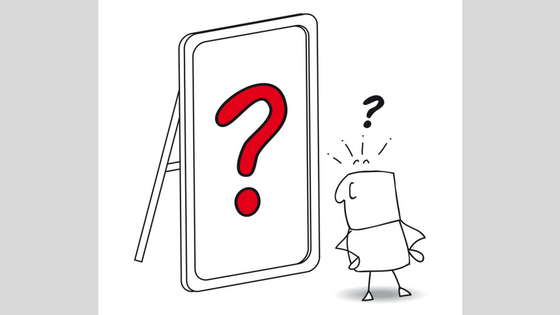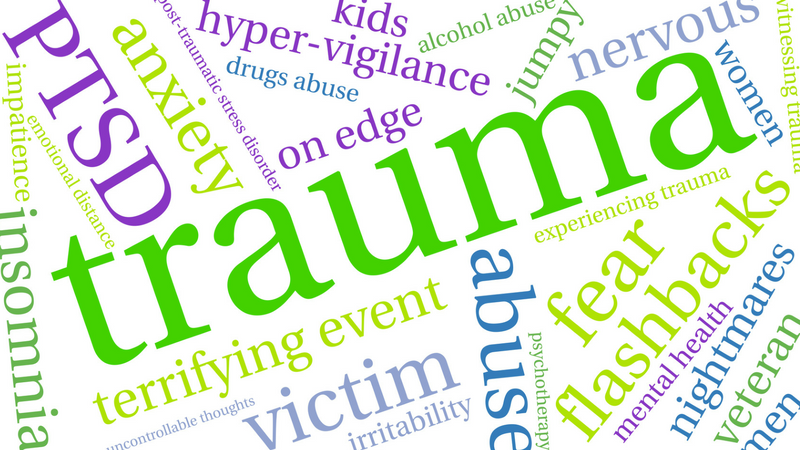You Are Not Your Disorder
One of the topics that come up in my support groups is the response to a diagnosis. For some people, a diagnosis can be a relief: Finally, there’s a name for the pain and hope exists: there’s a path forward. For others, the response is denial. “Only really messed-up people have (insert your flavor of disorder here).” For these people, often the commitment to getting help is half-hearted–if a commitment is even made in the first place.
Regardless, for everyone there comes a reckoning at some point. As it begins to sink in that our diagnosis is real (and particularly when we hit a plateau in our recovery), we grapple with a number of questions. How much of my personality is the result of my disorder? Do I really have to take my prescription(s) for the rest of my life? Who do I tell, and when? What does this mean for my ability to work?
In these moments, hope is difficult to find. I don’t know about you, but I want to believe I will feel better and that I am continuing to improve. I desperately desire to believe that learning new skills means that the life I dreamed of as a child is more than a possibility for me. And, while most days I genuinely believe these things (because I’ve seen it happening in my life), when I find myself struggling in these moments, hope feels distant.
A Little of My Story
Honestly, for me, getting a diagnosis was a tremendous relief. It explains so much of my life. It explains my periodic depressions and some of my (admittedly irrational and risky) decisions and experiences. I embraced my diagnosis and was excited to tell my husband: finally, we have an answer. I was also excited to tell my parents and sisters, from whom I’d felt a lot of judgment over my past: there’s an explanation. I was dealing with factors beyond my control.
I leaned hard into my diagnosis, diving into therapy with more vigor and practically militant about taking my Lamictal (a mood stabilizer). I knew that meds were only a tool and not the solution to my disorder, but I was ready to take any help I could get.
I’m going to get better.
I won’t need to quit another job because the stress becomes too much for me. My relationships will get better. I will learn how to manage my finances better; spending sprees will be less of a factor. As much as I knew that I would still have mood swings, I knew that I would be the one to do all the work. My disorder, which played a starring role in the first 40 years of my life, would become an inconvenient footnote for the next 40.
I’m going to get better.
As I moved forward in my recovery, I began to realize my expectations were unrealistic. Yes, therapy was helpful. Yes, I did the exercises in every class I had the benefit of attending. Yes, I got better. Today, I’m much healthier, better at setting boundaries in my life, and my relationships are significantly stronger. I even have a circle of friends around me now, and I belong to a community of people who lift me up when I struggle.
Facing Tough Questions
But I’ve had to face questions that I never expected. For me, one of the benefits of my hypomania is that I feel “like myself.” Life feel easy, I have energy, and I am capable of incredible things when I’m hypomanic. (I built the Wounded Birds Ministry website in only four days during a hypomanic phase.) People genuinely like the hypomanic, extremely extroverted and fun version of me.
But how much of that person is me? How much is my personality? How much of my personality in those moments are distortions of who I am?
I’ve seen this in people with depression disorders, too. “I’m just a pessimist,” they say when from the outside, it is clear to those around them that it’s the depression talking. As they heal, they wonder how much of their worldview is simply who they are and how much is a distortion caused by their disorder?
Understanding Our Identity
One of the benefits of therapy (and journaling between therapy sessions) is taking time to walk through these questions. We discover and uncover our identity. Interests and hobbies we had when we were young resurface, and we embrace them anew. We cast off the labels we’ve adopted over the course of our lives. I’m no longer “Debbie Downer” or the one who “doesn’t live up to [your] potential.” I don’t have to work at a Fortune 500 company to be successful.
For a while there, I defined myself as bipolar. “I am bipolar,” I would share with people (in safe situations). As I started to untangle who I am and get comfortable with having (mostly) stable moods, I started sorting out how bipolar disorder distorts my personality. I’ve identified triggers and am getting better at understanding the symptoms of my mood cycles.
It changed how I identify myself. When someone asks who I am, I tell them I am a wife, a mother, a Christian, a knitter, a writer, and a mental health advocate.
I don’t tell people, “I’m bipolar.” Instead, I say, “I have bipolar disorder.” When someone attempts to correct me (usually out of ignorance) with, “Oh, you’re bipolar?”, I now respond with, “I have bipolar disorder. It’s caused me a lot of pain. But it’s not who I am.”
It’s the same for you: You are not your diagnosis. People living with cancer say, “I have cancer,” not “I am cancer.” Your illness is simply that: an illness. It may influence your life, and you may have to learn to manage your symptoms, but it doesn’t define you.
Getting to a place where you can accept this truth may be easier for you than it was for me. It may be harder for you than it was for me. Regardless, the truth is the truth: You are so much more than your disorder.
Have you struggled with your diagnosis? What thoughts have you had about it? I always love hearing from readers; please share in the comment section below.
Looking for daily inspiration and community? Join our warm and supportive Facebook group!









